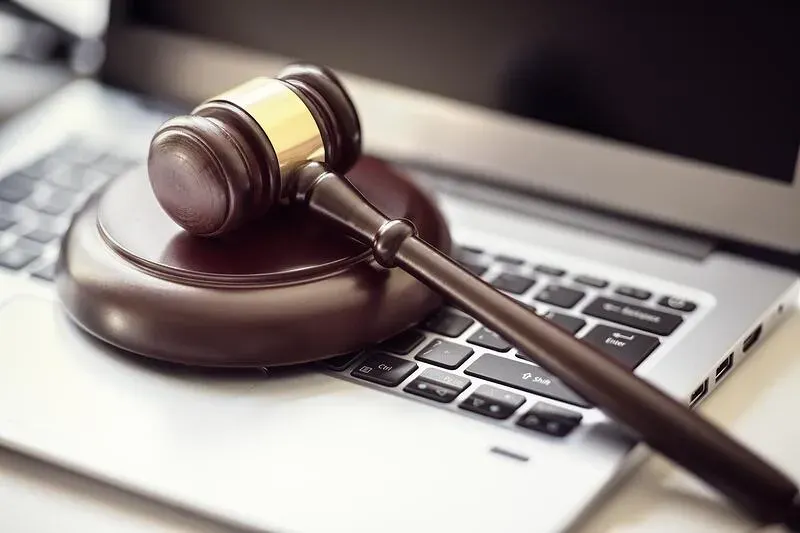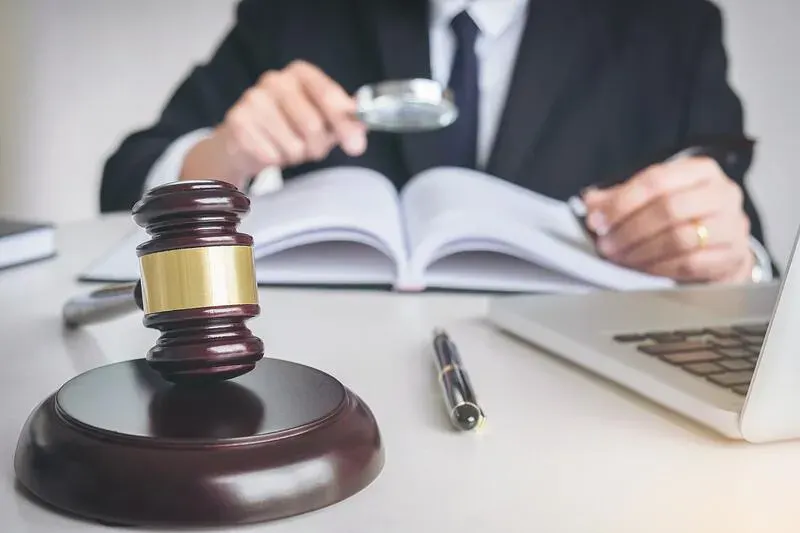Streamlining Justice: How Legal Transcriptions Enhance Legal Processes

In the intricate world of law, precision and accuracy are paramount. Legal professionals strive to navigate through vast amounts of information to build strong cases, and one crucial tool that aids in this process is legal transcription. This article will explain the significance of legal transcriptions, shedding light on how they streamline justice and enhance legal processes.
The Basics of Legal Transcriptions
Legal transcriptions (Opens in a new window) involve the conversion of spoken legal proceedings, such as court hearings, depositions, or recorded statements, into written form. These transcriptions serve as accurate records of the events and discussions that unfold during legal proceedings. In essence, they transform spoken words into a documented format, making it easier for legal professionals to review, analyze, and reference crucial information.
Clarity in Legal Communication
One of the primary ways legal transcriptions streamline justice is by providing clarity in communication. In legal settings, every word spoken holds significance, and even the slightest nuance can influence the outcome of a case. Legal transcriptions ensure that nothing is lost in translation by preserving the verbatim details of spoken words.
These transcriptions become invaluable resources for legal professionals when preparing for trials, reviewing witness statements, or examining evidence. The ability to access an accurate account of what was said during legal proceedings enhances the overall clarity of communication, fostering a fair and just legal system.
Facilitating Case Preparation
Legal professionals often find themselves inundated with information while preparing for a case. Legal transcriptions play a pivotal role in this process by providing an organized and searchable document that allows attorneys, paralegals, and other professionals to quickly locate and reference key information.
Imagine a scenario where a lawyer needs to review witness testimonies before a trial. Instead of listening to hours of audio recordings, legal transcriptions enable them to efficiently scan through the text, pinpointing specific statements or details that are crucial to building their case. This not only saves time but also ensures that no essential information is overlooked.
Accessibility and Collaboration
In the digital age, accessibility and collaboration are paramount. Legal transcriptions contribute to the seamless sharing of information among legal professionals. By converting spoken words into written text, these transcriptions become easily shareable and distributable among team members, facilitating collaboration and ensuring everyone is on the same page.
For instance, a legal team working on a complex case may have members spread across different locations. Legal transcriptions allow for the easy exchange of information, enabling efficient collaboration despite geographical distances. This accessibility ensures that all team members have equal access to the details of the case, fostering a more unified and effective legal strategy.
Time and Cost Efficiency
Legal proceedings can be time-consuming and costly. The efficiency brought about by legal transcriptions can significantly alleviate these challenges. Instead of spending hours listening to recordings, legal professionals can quickly review and extract information from transcriptions.
Time efficiency is particularly crucial in the legal world, where deadlines are stringent, and the pace of work is often demanding. Legal transcriptions provide a way to expedite various legal processes, from case preparation to research, allowing legal professionals to focus on more critical aspects of their work.
Additionally, the cost-effectiveness of legal transcriptions cannot be overstated. The time saved by utilizing transcriptions translates into reduced billable hours, making legal services more accessible to clients. This efficiency is not only beneficial for legal professionals but also contributes to a more streamlined and cost-effective legal system overall.

Ensuring Accuracy and Detail
The devil is in the details, especially in legal matters. Legal transcriptions serve as a meticulous record-keeping tool, ensuring that every word spoken during a legal proceeding is accurately documented. This level of detail becomes crucial when dealing with complex cases where nuances matter.
Inaccuracy or misinterpretation of information can have severe consequences in legal proceedings. Legal transcriptions act as a safeguard, providing a reliable and precise account of the events that unfold during hearings, depositions, or any other legal interactions. This accuracy becomes a cornerstone in building strong cases and upholding justice.
Adapting to Technological Advancements
As technology continues to advance, the legal field is not immune to its transformative effects. Legal transcriptions have evolved with technological progress, offering features that further enhance their utility.
Speech-to-text technologies, for example, have significantly improved the speed and accuracy of legal transcriptions. These technologies convert spoken words into text in real-time, providing a near-instantaneous record of legal proceedings. This real-time capability is especially beneficial during court hearings, where timely access to information is crucial.
Moreover, the integration of artificial intelligence (AI) and machine learning algorithms has further refined the transcription process. These technologies can learn and adapt to specific legal terminology, ensuring that transcriptions are not only accurate but also contextually relevant. This adaptability enhances the overall efficiency and reliability of legal transcriptions in the modern legal landscape.
Legal Transcriptions Beyond the Courtroom
While legal transcriptions are often associated with court hearings, their utility extends beyond the courtroom. Law firms, legal departments, and individual practitioners utilize transcriptions in various legal contexts.
Depositions, for example, are critical components of the legal discovery process. Legal transcriptions of deposition proceedings provide attorneys with a written record that can be easily referenced during trial preparation. This ensures that they can recall and leverage key statements made by witnesses, experts, or other parties involved.
In the realm of legal research, transcriptions serve as valuable resources. Researchers can quickly search and analyze specific legal concepts, case law references, or legislative discussions. This accelerates the research process, allowing legal professionals to stay informed and up-to-date on relevant legal precedents and developments.
Addressing Language Barriers
In an increasingly globalized world, legal cases may involve parties, witnesses, or evidence in different languages. Legal transcriptions play a crucial role in overcoming language barriers by providing a written record that can be translated and understood by legal professionals involved in the case.
Translation services, coupled with legal transcriptions, ensure that language differences do not impede the progress of legal proceedings. This inclusivity enhances the accessibility of justice and promotes fairness, allowing legal professionals to navigate cases involving diverse linguistic backgrounds.
Compliance and Accountability
Legal transcriptions contribute to maintaining compliance with legal standards and ethical practices. They act as a tangible record that can be referred to in case of disputes or challenges to the proceedings. This accountability is vital for upholding the integrity of the legal system and ensuring that justice is administered fairly.
Legal professionals, regulatory bodies, and even the parties involved in a case can refer to transcriptions as a reliable source of information. This transparency not only safeguards the rights of individuals but also reinforces the credibility of legal processes.
Conclusion
Legal transcriptions play a crucial role in streamlining justice and enhancing legal processes. By providing clarity in communication, facilitating case preparation, ensuring accessibility and collaboration, and promoting time and cost efficiency, legal transcriptions have become indispensable tools for legal professionals.


